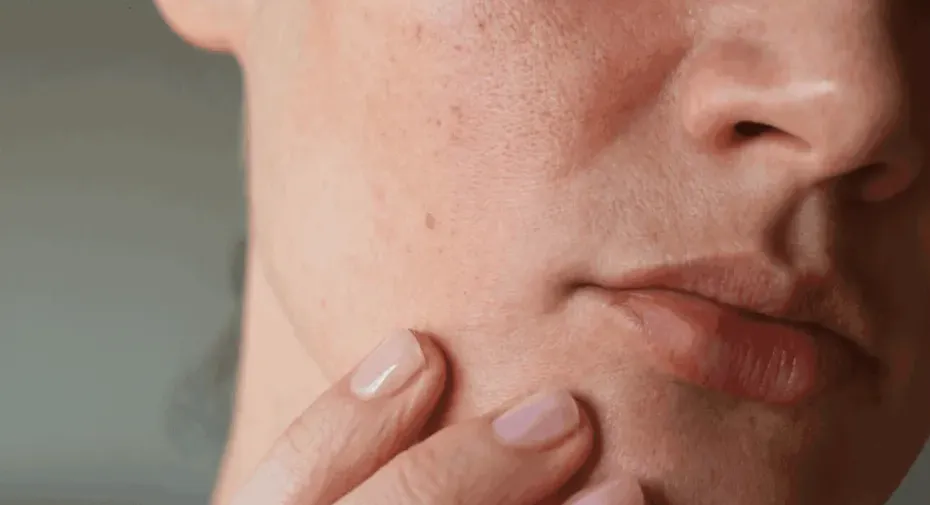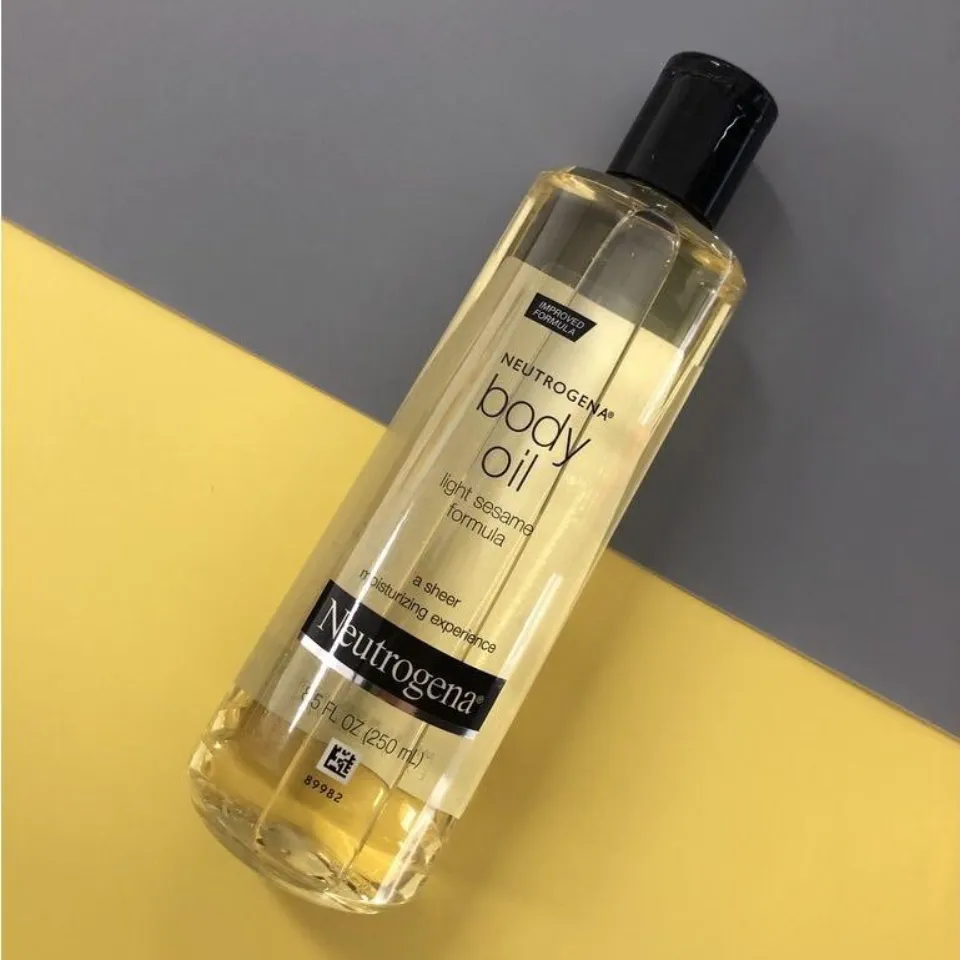A typical skin complaint is dry skin on the nose, particularly in the winter. But how to treat dry skin around nose?
Flaky, dry, and itchy skin around the nose can be treated and prevented through constant hydration, moisturizing, and using shea butter and jojoba oil.
We cover everything you need to know about this troublesome area of the nose, from how much water you drink to not wearing sunscreen.
How to Treat Dry Skin Around Nose?
There are plenty of ways to help keep your skin healthy:
Stay Hydrated

Your skin may be more susceptible to developing skin conditions if you experience general dehydration for an extended period of time.
Make sure you drink enough water, especially if you live in a dry area with long, sweltering summers.
Also Read:
Revamp Your Diet
Your diet directly affects the condition of your skin. Consider consuming foods high in antioxidants and omega-3 fatty acids to keep your skin supple and prevent dryness.
Omega-3 fatty acids are found in abundance in chia, hemp, and flax seeds, which, when regularly consumed, hydrate and soften the skin.
Particularly flaxseed oil has been shown to lessen dryness, roughness, and scaling of the skin. Incorporate a lot of fresh fruits and vegetables into your diet as well.
Invest in a Humidifier

Keep a humidifier in your home if you reside in an area with low humidity and dry air.
It will keep the air inside moist, which will help lessen cold or allergy symptoms and stop your sinuses from drying out. Additionally, it will prevent the skin from becoming excessively dry and chapped.
You Might Also Like: How to Treat Dry Skin on Face During Pregnancy?
Use Products With Hyaluronic Acid (HA)
Chronically dry skin is damaged skin. You must treat the dry, flaky skin around your nose with nourishing and moisturizing products if you want to make it better.
One such ingredient is hyaluronic acid (HA), which has regenerative, wound-healing, and anti-inflammatory qualities that can help lessen dry skin. To hydrate the skin, it draws moisture from the atmosphere.
Therefore, it should only be used in humid environments. It’s simple to find HA-containing gels, creams, lotions, and serums on the market.
Use Sunscreen
The sun’s UV rays and other environmental toxins can play a significant role in the development of dry skin around the nose and mouth.
If left untreated, sunburns on the skin near the nose can develop into throbbing bumps and flaky scales. Every time you go outside, use a broad-spectrum sunscreen to shield your skin from sunburn.
Sunscreen won’t reverse any already present damage, such as precancerous growths or skin cancer, but it will lessen the likelihood of developing new damage.
Pamper Your Skin More in the Winters
During winters, your skin loses moisture easily and can become itchy and flaky if you do not protect it. The problem will probably worsen in the dry winter months if you have dry skin around your nose.
When the weather is colder, be sure to take good care of your skin and overall health. To calm your throat and ward off allergies, eat nourishing foods and drink plenty of warm herbal teas.
To keep the skin around your nose from drying out, pamper it with rich, moisturizing creams.
Use Natural Remedies
Plant oils with anti-inflammatory and antioxidant properties, like coconut oil, jojoba oil, almond oil, olive oil, and sesame oil, are helpful for mending the skin barrier and accelerating recovery.
Use warm water and a gentle cleanser to wash your face. To maintain softness and smoothness in the skin around your nose, pat it dry and massage a few drops of any of these oils into it.
Use Products With Glycerol
Use creams with nourishing components like glycerol to calm dry, flaky skin. It is a hydrating substance that creates a barrier of protection on the skin and aids in retaining moisture.
Glycerol also has antimicrobialproperties and accelerates the process of wound healing, thus giving you relief from itchiness and redness.
In order to make your own DIY moisturizers and serums, you can also purchase pure glycerol. It is even more crucial to moisturize when the air’s humidity levels fall because the skin tends to become drier.
Try Gentle Physical Exfoliation
The urge to attempt to remove the flaking skin from your peeling nose can be extremely strong.
However, in the long run, that’s not the best choice because you risk further harming your skin.
It’s important to use the scrub gently. Use clean fingertips and a small amount of the solution to lightly rub the skin with. After that, rinse with cool water and moisturize delicately and nourishingly.
Use a Nasal Spray for Allergies and Colds
Constantly blowing your nose and wiping it with tissues can cause the skin on and around it to become dry and more prone to peeling, leaving the skin there tender and sore.
To manage your allergies and clear out your nose so that you don’t need to blow your nose frequently, use a suitable nasal spray. If you have severe allergies, always see a doctor; never take your own medications.
Read More:
Causes of Dry Skin Around the Nose
The medical name for dry skin on the face is known as xerosis. There are many possible causes of dry skin in the region around your nose. Several of the causes are listed below.
1. Hot Water and Long Showers
You might want to take a long, hot shower if you live somewhere cold or where the winters are particularly harsh.
But that is one of the causes for why your skin may become drier and begin to flake in the area around your nose. Your nose’s surrounding skin can become dry even if you wash your face excessively.
2. Skin Conditions
Dry skin around the nose is common in people with skin conditions like atopic dermatitis, rosacea, or psoriasis. This issue frequently affects those who have rosacea because of the dryness the condition causes around the cheeks and nose.
Another typical condition is seborrheic dermatitis, which causes dry patches of flaky skin to appear on the scalp, behind the ears, around the eyebrows, and on the corners of the nose.
It is brought on by malassezia yeast on the skin.
3. Excess Sebum Oil Production
There may be an excess of sebum oil being produced on your skin if you have flaky skin around your nose. The combination of excess sebum oil production and dead skin cells is the primary reason for dry and flaky skin around your nose
4. Dehydration
If you don’t drink enough water, your skin will become dehydrated because it won’t receive enough internal moisture. Dry skin around the mouth and nose can result from this as well.
5 the Weather
Weather is a significant factor because harsh winters and cold, dry air can lead to dry skin all over the face, particularly around the nose and mouth.
If you don’t use adequate skin protection, like moisturizers and nourishing serums, this dryness becomes more pronounced.
6. Age Factor
The skin typically becomes thinner and loses moisture as you age. Because of their dry skin, 80% of older people report having winter itch.
This condition is brought on by the loss of oil glands. It might be one of the causes of dry, flaky skin around the nose.
7. UV Rays
Sunburn and skin peeling can result from the UV rays’ impact on skin that is exposed.
Sunglasses can protect the eyes, but the nose typically remains exposed to the sun. The nose and surrounding areas may develop dry skin as a result of this.
8. Allergies/Cold
Peeling of the skin around your nose can occur if you frequently blow into a tissue while you are congested.
Additionally, rubbing or wiping the nose with a rough handkerchief can irritate the nearby tissues. The same issue arises when you sneeze or have a runny nose because of an allergy.
How Long Does It Take to Heal Dry Skin Around the Nose?
If you are using the right products, and the dry skin is not due to an underlying, more serious issue, your skin’s condition should improve in a week to ten days.
It might take longer if the issue is persistent.
Final Words: How to Treat Dry Skin Around Nose
If you have dry skin around your nose and the problem doesn’t seem to go away, keep your skin hydrated with the right moisturizer and drink enough water. It will be shielded from additional damage as a result.
Consult a dermatologist if the issue continues because it might be a sign of something more serious and deeper.
You Might Also Like:
- How to Get Smooth Skin on Face?
- How to Remove Dead Skin on Face?
- How to Tighten Face Skin With Exercise?
FAQs
How to Get Rid of Dry Skin on Nose Overnight?
Applying ointments or creams as soon as you finish washing your skin while it’s still damp is the best way to get rid of dry skin around your nose.
Why Won’t the Dry Skin Around My Nose Go Away?
It may be an indication of skin conditions like rosacea or seborrheic dermatitis if your nose is consistently extremely dry and flaky.
Does Vaseline Help Dry Skin under Nose?
A dry nose can indeed be treated with Vaseline.




